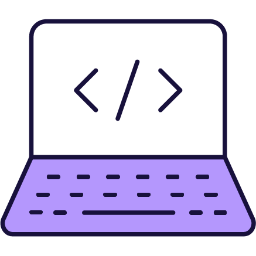Showing
courses for
Introduction to Coding
Pixel Pals: Creative Coding with Scratch Jr
Life Skills You'll Gain
Ready to level up your life skills? Learning about Coding is a great way to do it! Check out some of the abilities you'll develop as you become a pro.
Problem-solving
Requires breaking down complex problems into smaller, manageable tasks, and then finding solutions to those tasks.
Critical thinking
Requires understanding the logic and structure of a program or robot, and being able to think critically about how to improve it.
Creativity
Allows students to express their creativity by building their own programs, games, art and other digital projects.
Persistence and grit
Can be challenging, and learning it often requires a lot of trial and error which develops persistence and grit as they work through difficult problems.
Collaboration
Often done in teams, and students learn how to work effectively with others and communicate their ideas effectively.
Digital literacy
Can help students develop their understanding of technology and how it works, which can be useful in many areas of life.
Entrepreneurial skills
Can be used to develop and design websites, mobile applications, software and robots. This can be used to start a business venture or to create a startup.
STEM skills
Often requires a combination of science, technology, engineering and math, and students who take robotics courses may develop their STEM skills and knowledge.
Communication
Students learn to express ideas effectively, collaborate, and provide feedback to achieve successful outcomes.
Discover Your Dream Career
Wondering where your Coding skills can take you? Check out these potential careers to discover your options.
Software Developer
They write computer programs to make sure the software you use on your computer or phone works properly.
Web Developer
They make websites that you can visit on the internet and make sure they look good and work well.
Mobile Developer
They make apps for your phone or tablet, like the games you play or the social media you use.
DevOps Engineer
They help make sure that the software people make works well and is easy for others to use.
Full-Stack Developer
They work on all parts of a website, from the front-end (what you see on the screen) to the back-end (what happens behind the scenes).
Game Developer
They create the video games you play on your computer or gaming console.
Cloud Engineer
They help make sure that people can access their information and programs from anywhere, using the internet.
Artificial Intelligence Engineer
They create computer programs that can think and make decisions like a human.

 Coding
Coding
 Robotics
Robotics
 Digital Art & Animation
Digital Art & Animation
 Artificial Intelligence
Artificial Intelligence
 Cyber Security
Cyber Security



.png)
